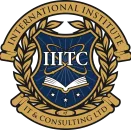Stay Ahead with Our IT Career Blog
Read articles designed to help you advance your career, stay informed about industry changes, and find inspiration
Stay Ahead with Our IT Career Blog
Read articles designed to help you advance your career, stay informed about industry changes, and find inspiration
Data Science and Analytics: Transforming Raw Data into Actionable Insights
Data Science and Analytics: Transforming Raw Data into Actionable Insights ...more
IT Training
May 28, 2024•2 min read

The Rise of Cloud Computing: Essential Training for Modern IT Professionals
The Rise of Cloud Computing: Essential Training for Modern IT Professionals ...more
IT Training
May 14, 2024•2 min read

Navigating the Future of Cybersecurity: Why Training is Essential
Navigating the Future of Cybersecurity: Why Training is Essential ...more
IT Training
May 07, 2024•2 min read

The Power of IT Training: Boosting Skills, Careers, and Innovation
IT training plays a crucial role in equipping individuals and organizations with the knowledge and skills necessary to navigate the ever-evolving technological terrain. ...more
IT Training
April 16, 2024•4 min read

Technical Certification Courses in Canada: Your Pathway to Success
Technical Certification Courses in Canada: Your Pathway to Success ...more
IT Training
April 09, 2024•3 min read

IT Training Courses in Canada: Elevate Your Tech Skills
IT Training Courses in Canada: Elevate Your Tech Skills ...more
IT Training
April 02, 2024•2 min read


Data Science and Analytics: Transforming Raw Data into Actionable Insights
Data Science and Analytics: Transforming Raw Data into Actionable Insights ...more
IT Training
May 28, 2024•2 min read

The Rise of Cloud Computing: Essential Training for Modern IT Professionals
The Rise of Cloud Computing: Essential Training for Modern IT Professionals ...more
IT Training
May 14, 2024•2 min read

Navigating the Future of Cybersecurity: Why Training is Essential
Navigating the Future of Cybersecurity: Why Training is Essential ...more
IT Training
May 07, 2024•2 min read

The Power of IT Training: Boosting Skills, Careers, and Innovation
IT training plays a crucial role in equipping individuals and organizations with the knowledge and skills necessary to navigate the ever-evolving technological terrain. ...more
IT Training
April 16, 2024•4 min read

Technical Certification Courses in Canada: Your Pathway to Success
Technical Certification Courses in Canada: Your Pathway to Success ...more
IT Training
April 09, 2024•3 min read

IT Training Courses in Canada: Elevate Your Tech Skills
IT Training Courses in Canada: Elevate Your Tech Skills ...more
IT Training
April 02, 2024•2 min read

